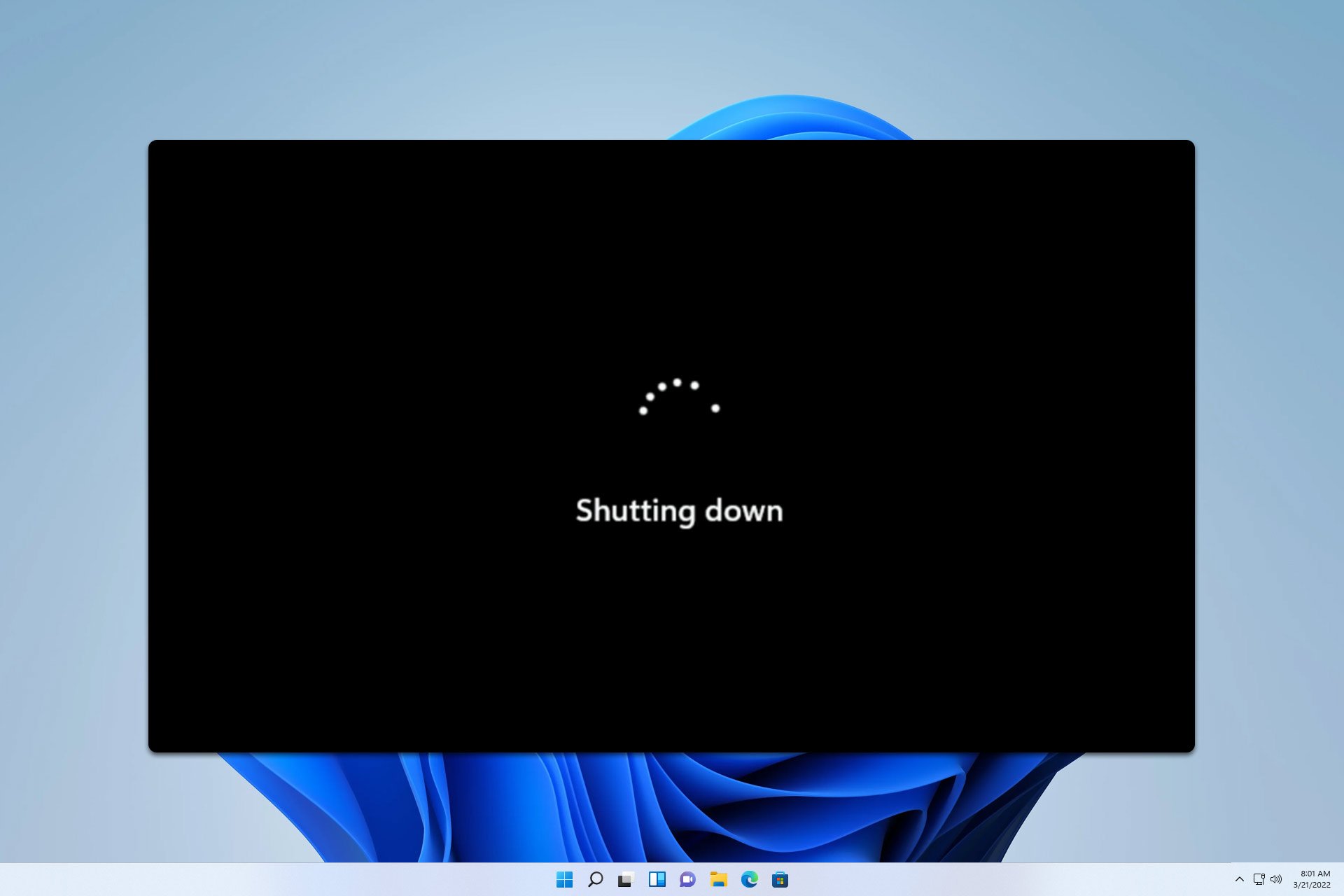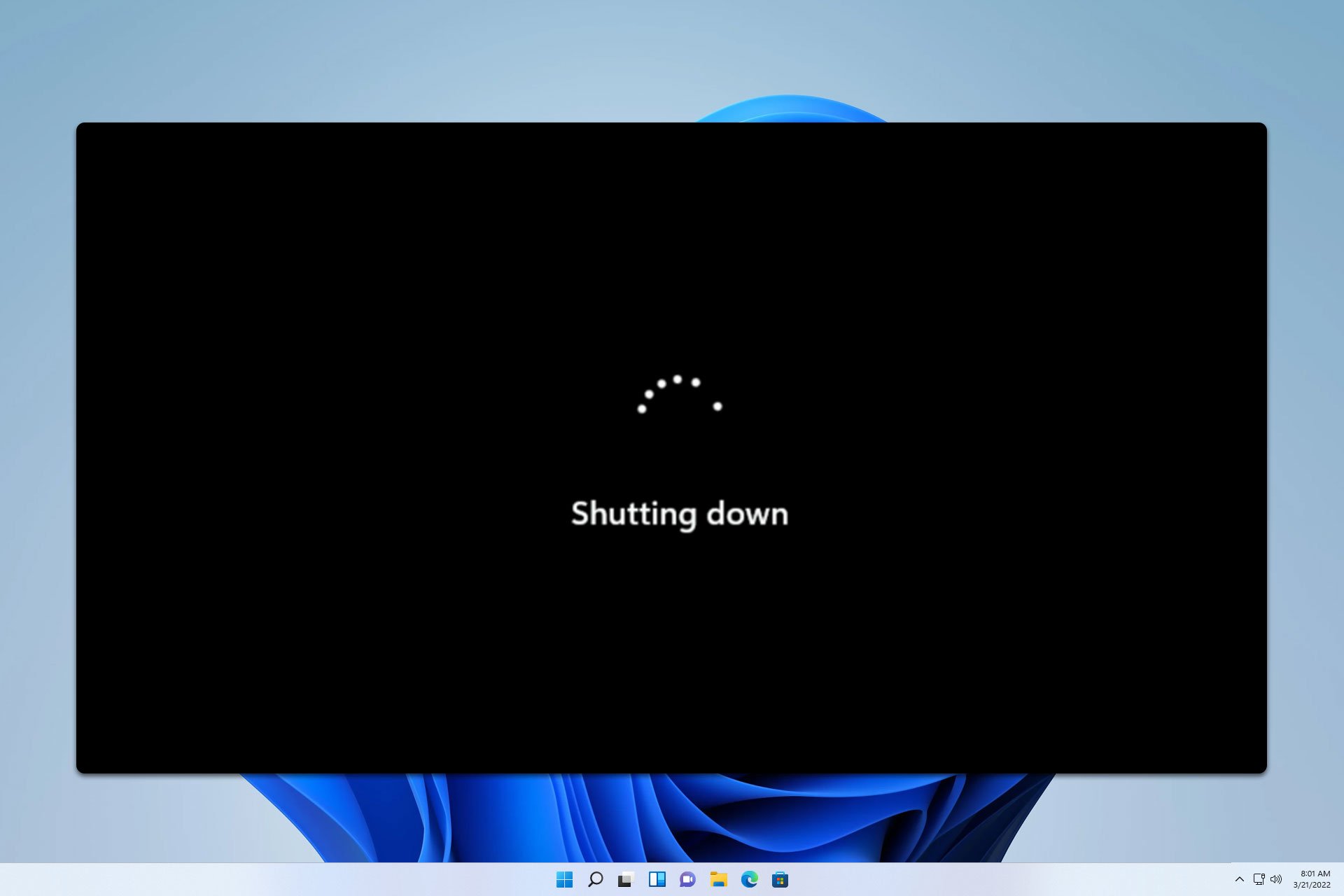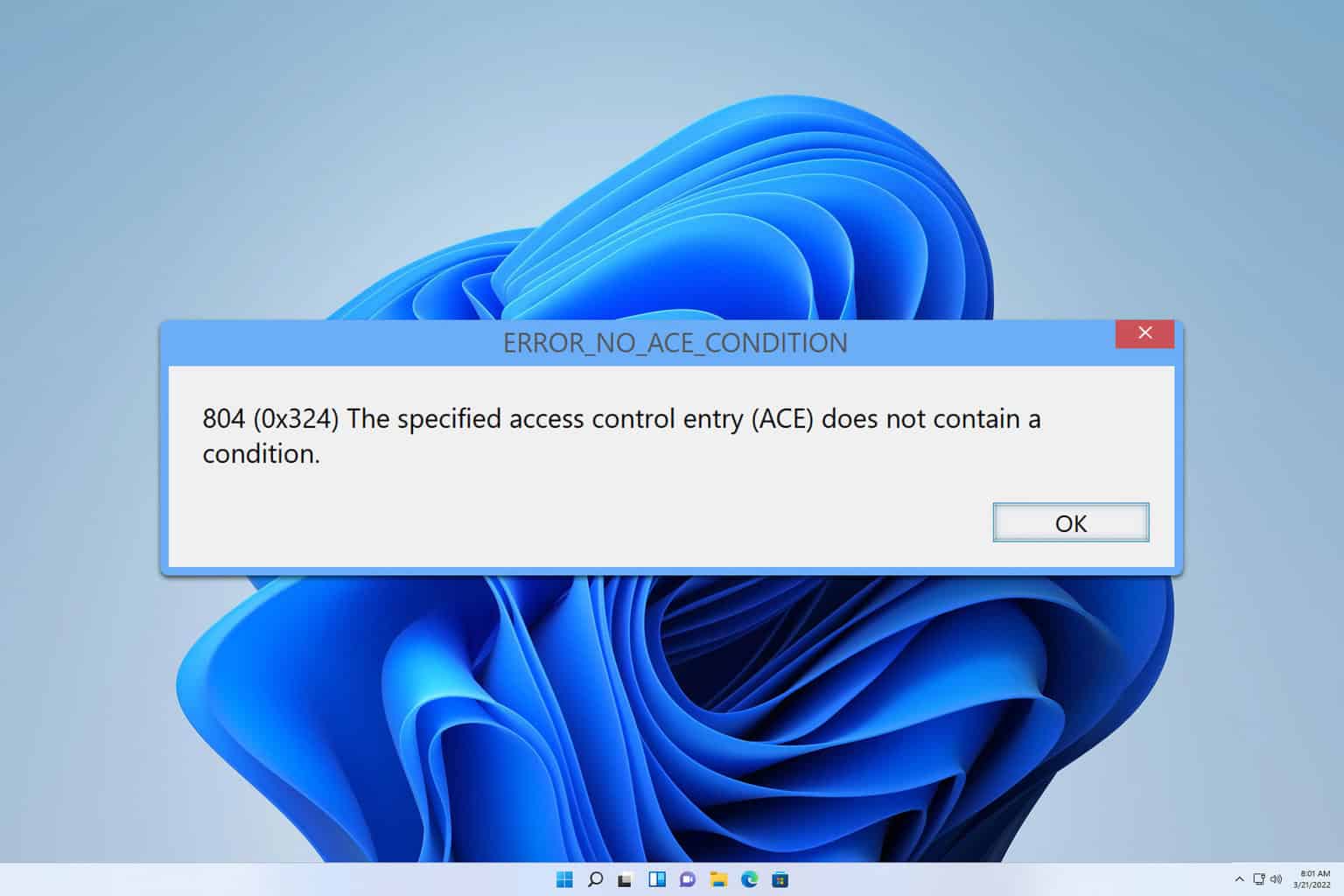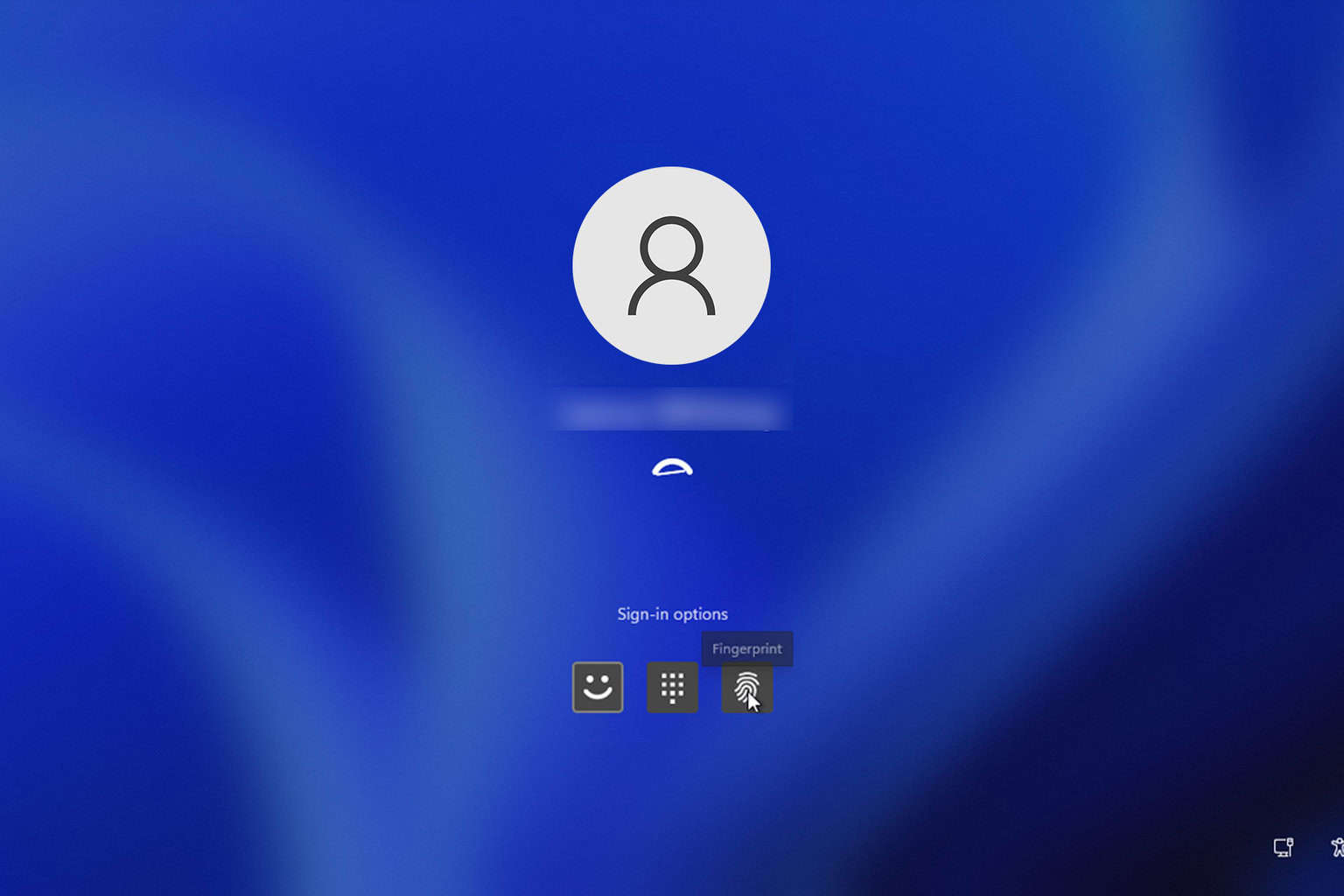IPI_WATCHDOG_TIMEOUT BSoD 0x000001DB [Solved]
Updating the graphics driver is a quick fix
5 min. read
Published on
Read our disclosure page to find out how can you help Windows Report sustain the editorial team. Read more

The IPI_WATCHDOG_TIMEOUT Windows blue screen appears when the processor is stuck in an IPI loop for too long, and the OS ultimately crashes. Causes for the BSoD include a corrupt/outdated graphics driver, conflicting apps, hardware issues, corrupted system files, and problems with the BIOS.
Before you proceed to the solutions, reboot the PC, reseat the RAM modules, and disable overclocking, if any is configured. For most, these basic fixes will do the trick!
How can I fix the IPI_WATCHDOG_TIMEOUT blue screen?
 NOTE
NOTE
1. Update the graphics driver
- Press Windows + X to open the Power User menu, and select Device Manager.
- Expand the Display adapters entry, right-click on the active graphics adapter, and select Update driver.
- Click on Search automatically for drivers and wait for Windows to install the best locally available version.
- Once done, reboot the PC to apply the changes.
In several cases, before the PC crashed with IPI_WATCHDOG_TIMEOUT, the GPU usage in Task Manager touched 100%, even with no resource-intensive apps running, indicating an issue with the installed driver. So, your primary approach should be to update the graphics driver.
If Windows can’t find a better version, go to the manufacturer’s official website, locate the new releases, and then manually install the latest driver!
2. Repair the corrupted system files
- Press Windows + S to open Search, type Command Prompt, and click on Run as administrator.
- Click Yes in the UAC prompt.
- Paste the following DISM commands individually and hit Enter after each:
DISM /Online /Cleanup-Image /CheckHealthDISM /Online /Cleanup-Image /ScanHealthDISM /Online /Cleanup-Image /RestoreHealth - Now, execute this command for the SFC scan:
sfc /scannow - Restart the computer and check for improvements.
Corrupted system files are also a common reason behind IPI_WATCHDOG_TIMEOUT, and to fix these, you must run the DISM (Deployment Image Servicing and Management) and SFC (System File Checker) scans. The two will replace any problematic files with their cached copies!
3. Test the RAM and storage drive
3.1 Test the RAM
- Press Windows + S to open Search, type Windows Memory Diagnostic, and click on the relevant result.
- Click on Restart now and check for problems.
- Once the scan is done running, check the mdsched.exe logs.
When Windows Memory Diagnostic can’t find any issues, I recommend using Memtest86+, an advanced, open-source tool that will run a wide array of tests on individual memory modules and detect even the smallest of problems.
If any RAM stick turns out to be faulty, replace it to fix IPI_WATCHDOG_TIMEOUT!
3.2 Fix issues with storage drive
- Press Windows + R to open Run, type cmd, and hit Ctrl + Shift + Enter.
- Click Yes in the UAC prompt.
- Paste the following command and hit Enter:
chkdsk /r - If asked to schedule the scan for the next time you restart the computer, press Y, hit Enter, and then reboot the PC.
- Once done with disk repair, check for improvements.
4. Uninstall conflicting third-party apps
- Press Windows + R to open Run, type appwiz.cpl in the text field, and hit Enter.
- Select any recently added app from the list, and click on Uninstall.
- Follow the on-screen instructions to complete the process.
- Once done, restart the computer and verify whether IPI_WATCHDOG_TIMEOUT is fixed.
If a quick app removal doesn’t help, it’s likely that the leftover files are still conflicting with Windows and triggering the BSoD. In this case, it’s best to use a top-rated software uninstaller to wipe all traces of the program!
5. Reset the BIOS
- Turn off the computer, then power it on, and as soon as the display lights up, repeatedly hit the F1, F2, F10, F12, Del, or Esc key, depending on the system manufacturer, to access the BIOS.
- Now, look around, find the Default, Load default, or Reset BIOS option, and click on it.
- Choose the appropriate response in the confirmation prompt.
- Boot into Windows and verify whether the BSOD reappears.
6. Update the BIOS
If a BIOS reset doesn’t help, the next solution is to update the BIOS. Since this is a critical process and slightly different for each manufacturer, I recommend you check their official website for the exact steps.
Also, when a newer version was not available, reinstalling the same BIOS version helped many users fix IPI_WATCHDOG_TIMEOUT in Windows.
7. Perform an in-place upgrade
 NOTE
NOTE
- Go to Microsoft’s official website, select the OS edition and language, and then download the Windows 11 ISO.
- Run the ISO file, and click Open in the confirmation prompt.
- Now, run the setup.exe file.
- Click Yes in the UAC prompt.
- Click on Next to proceed.
- Read Microsoft’s license terms and click on Accept.
- Make sure the setup reads, Keep personal files and apps, click on Install, and confirm the change.
- Wait for the in-place upgrade to complete. It may take 30-90 minutes.
When nothing else works, the last option is to perform an in-place upgrade. It’s basically like a Windows reinstall, but your personal files and apps remain unaffected!
Remember, solving the BSoD becomes much easier when you can identify the underlying cause. For instance, if IPI_WATCHDOG_TIMEOUT appears while playing Fortnite, it’s likely the graphics driver or RAM to blame. Similarly, you can find out the faulting component in each case.
Before you leave, discover all the causes of BSoD and take suitable measures to prevent them from reappearing!
For any queries or to share which fix worked for you, drop a comment below.





















User forum
0 messages